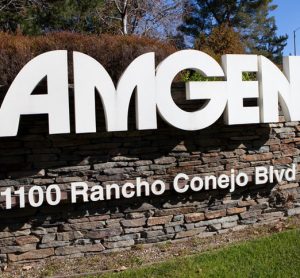Amgen announces positive top-line results from phase 3 MENDEL-2 trial of Evolocumab (AMG 145) in patients with high cholesterol
Posted: 17 December 2013 | | No comments yet
Study meets co-primary endpoints of LDL cholesterol reduction…


Amgen (NASDAQ:AMGN) today announced that the Phase 3 MENDEL-2 (Monoclonal Antibody Against PCSK9 to Reduce Elevated LDL-C in Subjects Currently Not Receiving Drug Therapy for Easing Lipid Levels-2) trial with evolocumab met its co-primary endpoints: the percent reduction from baseline in low-density lipoprotein cholesterol (LDL-C) at week 12 and the mean percent reduction from baseline in LDL-C at weeks 10 and 12. The mean percent reductions in LDL-C, or “bad” cholesterol, compared to placebo and ezetimibe were consistent with results observed in the MENDEL Phase 2 study.
Evolocumab is an investigational fully human monoclonal antibody that inhibits proprotein convertase subtilisin/kexin type 9 (PCSK9), a protein that reduces the liver’s ability to remove LDL-C from the blood.1
The MENDEL-2 trial evaluated safety, tolerability and efficacy of evolocumab in 614 patients with high cholesterol (LDL-C ≥ 100 mg/dL and < 190 mg/dL) who were not receiving lipid-lowering therapy. Patients were randomized to one of six treatment groups to compare two dosing regimens of evolocumab (140 mg every two weeks or 420 mg monthly) with placebo and ezetimibe (10 mg daily).
Safety was balanced across treatment groups. The most common (>2 percent in evolocumab combined group) adverse events (AEs) were headache, diarrhea, nausea and urinary tract infection.
“Data from the MENDEL-2 monotherapy study in more than 600 patients provide the first of Phase 3 results from our comprehensive development program for evolocumab,” said Sean E. Harper, M.D., executive vice president of Research and Development at Amgen. “The positive results we have seen with two distinct dosing options suggest that evolocumab may offer a promising approach to treat patients with high cholesterol.”
Details of the MENDEL-2 study results will be submitted to a future medical conference and for publication.
According to the Centers for Disease Control and Prevention, more than 71 million American adults have high LDL-C.2 Elevated LDL-C is recognized as a major risk factor for cardiovascular disease.3-4
MENDEL-2 Study Design
MENDEL-2 (Monoclonal Antibody Against PCSK9 to Reduce Elevated LDL-C in Patients Currently Not Receiving Drug Therapy For Easing Lipid Levels-2) is a Phase 3 randomized, multi-center, double-blind, double-dummy, stratified, placebo and ezetimibe-controlled parallel group study designed to evaluate the efficacy and safety of evolocumab in 614 hyperlipidemic patients with a 10-year Framingham risk score of 10 percent or less who were not receiving lipid-lowering therapy. Patients were randomized to one of six treatment groups to compare two dosing regimens of evolocumab (140 mg every two weeks or 420 mg monthly) with placebo and ezetimibe (10 mg daily). The co-primary endpoints were the percent reduction from baseline in LDL-C at week 12 and the mean percent reduction from baseline in LDL-C at weeks 10 and 12. Secondary efficacy endpoints included the absolute change from baseline in LDL-C at week 12 and the percentage changes from baseline at week 12 in non-high-density lipoprotein cholesterol (non-HDL-C), apolipoprotein B (ApoB), total cholesterol (TC)/HDL-C, ApoB/apolipoprotein A1 (ApoA1) ratio, lipoprotein(a), triglycerides, HDL-C and very LDL-C (VLDL-C).
About PROFICIO: The Evolocumab Clinical Trial Program
PROFICIO, which stands for the Program to Reduce LDL-C and Cardiovascular Outcomes Following Inhibition of PCSK9 In Different POpulations, is a large and comprehensive clinical trial program evaluating evolocumab. Phase 3 clinical trials for evolocumab are currently underway and build upon the Phase 2 studies.
The Phase 3 program includes 13 trials, with a combined planned enrollment of more than 28,000 patients. The Phase 3 studies will evaluate evolocumab administered every two weeks and monthly in multiple patient populations, including in combination with statins in patients with hyperlipidemia (LAPLACE-2), in patients with hyperlipidemia who cannot tolerate statins (GAUSS-2), as a stand-alone treatment in patients with hyperlipidemia (MENDEL-2), and in patients whose elevated cholesterol is caused by genetic disorders called heterozygous (RUTHERFORD-2) and homozygous (TESLA and TAUSSIG) familial hypercholesterolemia.
Five studies of evolocumab will provide long-term safety and efficacy data. These include FOURIER (Further Cardiovascular OUtcomes Research with PCSK9 Inhibition in Subjects with Elevated Risk), which will assess whether treatment with evolocumab in combination with statin therapy compared to placebo and statin therapy reduces recurrent cardiovascular events in approximately 22,500 patients with cardiovascular disease, and GLAGOV (GLobal Assessment of Plaque ReGression with a PCSK9 AntibOdy as Measured by IntraVascular Ultrasound), which will determine the effect of evolocumab on coronary atherosclerosis in approximately 950 patients undergoing cardiac catheterization.
Additional information about clinical trials of evolocumab can be found at www.clinicaltrials.gov.




